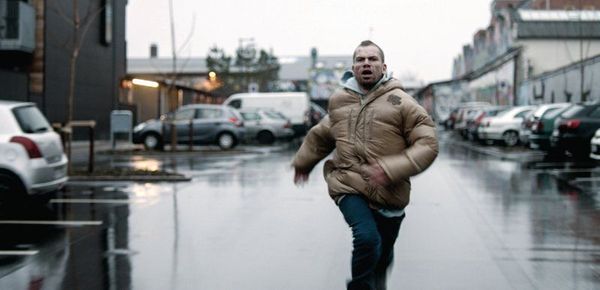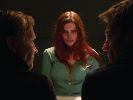Eye For Film >> Movies >> A Second Chance (2014) Film Review
A Second Chance
Reviewed by: Amber Wilkinson

Filmmaker Susanne Bier and her frequent collaborator Anders Thomas Jensen, have a soft spot for melodrama and moral mazes - only this time they grab you by the nose and drag you on a tour of their conclusions.
In A Better World, there was and authenticity and rawness in the relationships, here everything feels contrived, overblown and - perhaps the worst sin you can lay at the door of a psychological thriller - utterly predictable. Add to this the fact that the subject matter involves babies in peril and you wonder who on earth the film is aimed at.

The babies belong to people from different sides of the tracks. Alexander is the child of Andreas (Nikolaj Coster-Waldau), a copper and good egg and his wife Anne (Maria Bonnevie), who live in the sort of shoreline house that only exists in Good Homes magazine. Sofus, meanwhile, belongs to Sanne (Lykke May Andersen), a drug addict and her bad egg ex-con boyfriend Tristan (Nikolaj Lie Kaas), who live in the type of amped-up squalor that is always depicted in this sort of film.
Good eggs, of course, can break just as easily as bad eggs and so it is that Andreas is pushed into a decision that stretches the bounds of believability and which I will not detail as you'll see it coming soon enough for yourself. This is a film of fallout, from guilt, from stress from bad decisions but the characters lack the complexity to make this go beyond the thriller mechanics. Bier and Jensen tug us back and forth by that nose ring - things are in black and white one way and then flipped to the opposite extreme, when what we long for is a grey area. Even the supporting characters are little more than the stock ensemble you see in cop shows every week - from Andreas's boozed up flaky partner Simon (Ulrich Thomsen) to Anne's ice queen mother (Ewa Froling).
The cast do their best to get beyond caricature, with Coster-Waldau keeping you with Andreas against all the odds and Lie Kaas finding a riveting intensity in the raving piece of work that is Tristan, which goes way beyond what he is offered by the script.
Babies in perilous situtations naturally generate tension and there is nothing wrong with Bier's craftwork. Her colour palette of cool blues, offset by the water outside the house which is almost always presented as an inky blackness, offers support to the film's mournful air. But the lessons are hammered home so hard they destroy the mood.
Reviewed on: 28 Oct 2014
















